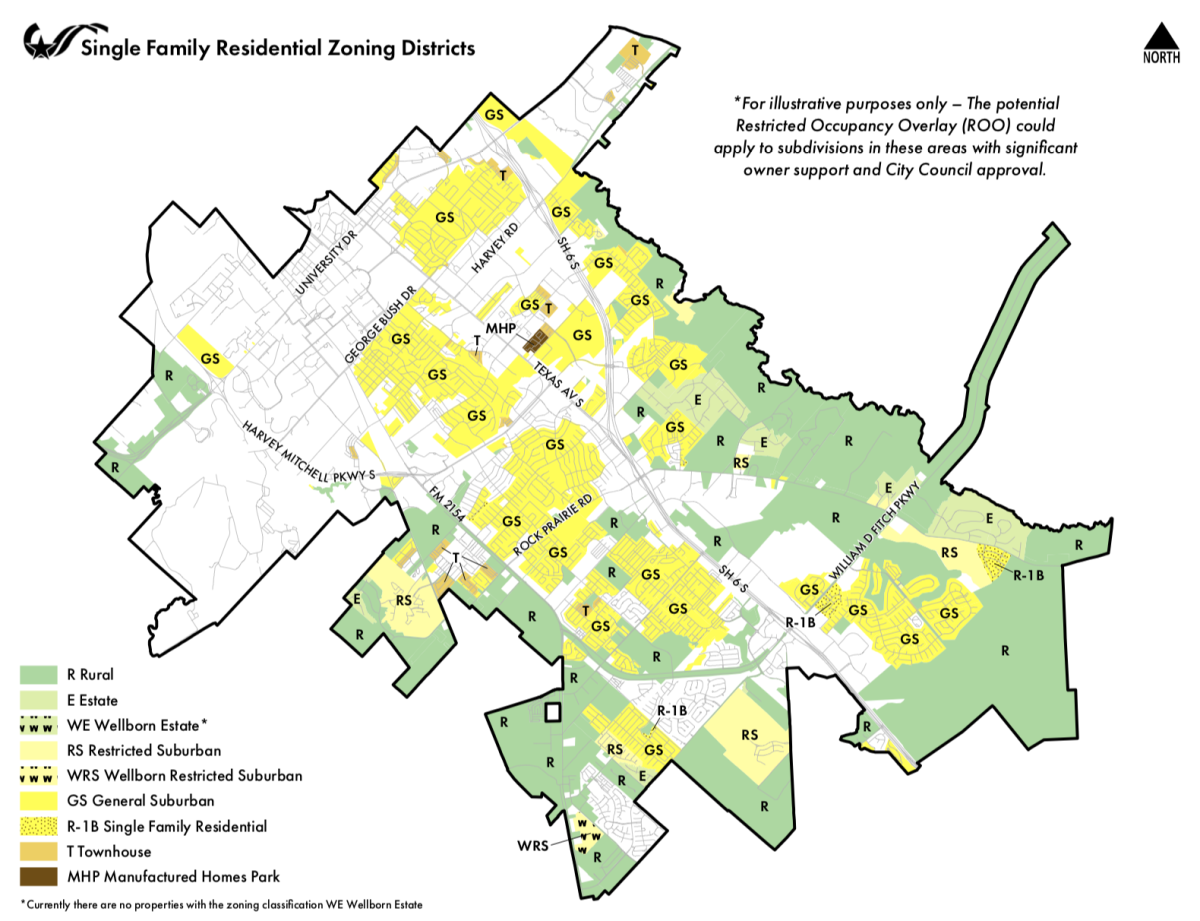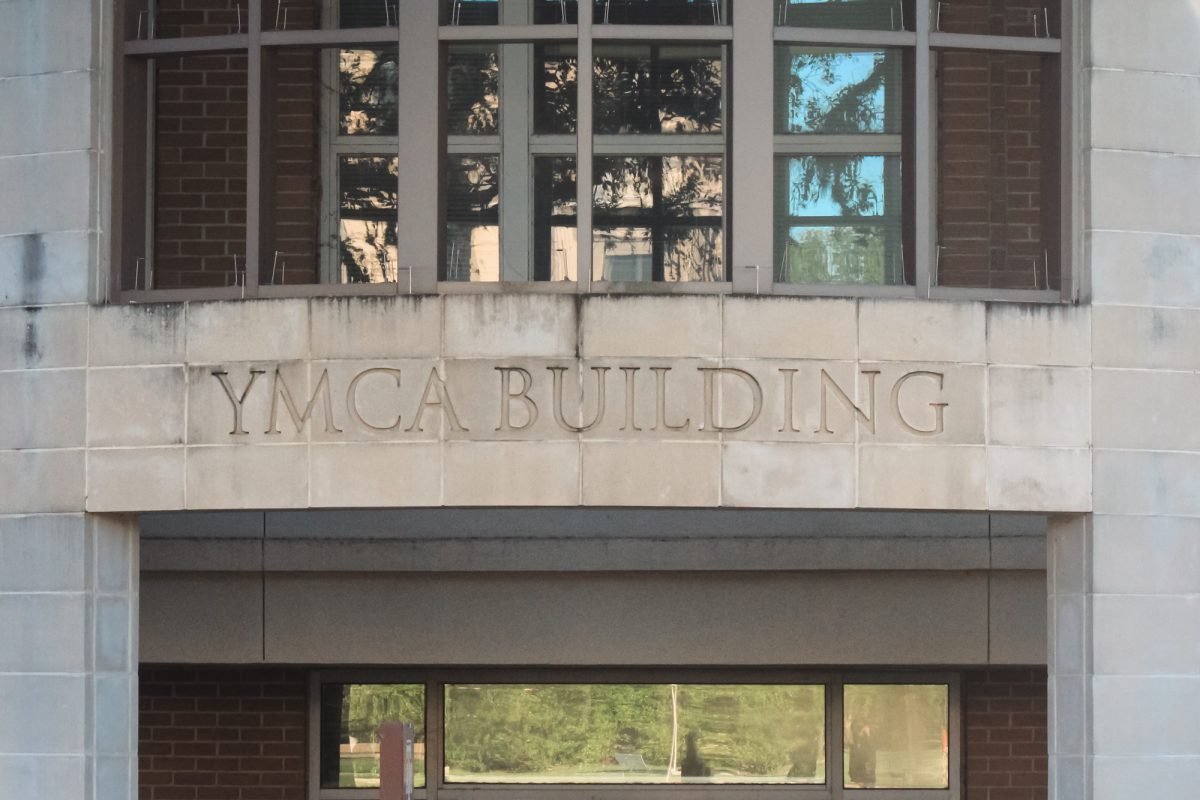On Monday, April 19, The College Station City Council could be voting on the passage of the Restricted Occupancy Overlay, or ROO. Taking this into consideration, it’s necessary to inform students about this anti-student housing policy.
Let’s begin.
The beating heart of this ordinance is that it would disallow more than two unrelated individuals to live together in newly built homes if “50 [percent] plus one” of property owners in their respective neighborhoods agree to its adoption. This policy will hurt future students because most Aggies that live together are not related, even under the new definition of family the city council passed in January.
Granted, students will not be immediately kicked out if the ROO passes in their neighborhood thanks to a grandfather provision. However, that isn’t sufficient to make the ROO a good policy.
Texas A&M’s student population continues to grow rapidly thanks to, among other things, A&M’s “25 by 25” initiative, a program whose goal is to have 25,000 engineering students by 2025. If investors can’t build homes close to campus — where students attend class, go to social events, work out and even play rounds of golf — they will have a harder time finding a place of their liking.
However, according to some local community leaders, there is reason to believe that families in these neighborhoods don’t want to live next to students.
One of the core arguments made by Richard Woodward, the president of the College Station Association of Neighborhoods, or CSAN, in favor of the ROO is that it will attract more families to neighborhoods. Woodward has even claimed [10:05] that, “Families want to live in the older parts of town, but they’re not going to want to live there if they’re overrun by student renters.”
Woodward’s point should be acknowledged, but here’s the kicker: This “overrunning” is primarily happening in neighborhoods close to campus. Woodward says the neighborhood he lived in at the time of the video is “really close to campus.” Yet, he is complaining about students moving into an area close to where they spend most of their time. Punishing future students for wanting to live close to the school they attend is heinous, and it’s one of many problems with this policy.
In the map above, taken from the city council’s website, every area highlighted bright yellow is a subdivision that will have the option to vote to enact the ROO if passed.
Long range planning administrator for the City of College Station Alyssa Halle-Schramm says 4,366 rental homes are located in the yellow highlighted areas out of 8,794 properties. This means the number of rental homes is less than 50 percent in all these areas combined, putting renters at a disadvantage. This is only one of many problems with the ROO, though.
The issue of enforcement is the next point of interest regarding this ordinance. Halle-Schramm said from 2017 to 2020, there were 64 potential “four-unrelated violations” that were submitted to city code enforcement. Of those 64, only six resulted in a summons. So far in 2021, 27 investigations have been started and only one has resulted in a summons. One example of this can be seen when former CSAN board member Fred Dupriest said in a recent city council meeting, “We’ve got three houses we’ve pursued action on.”
If the success rate is so embarrassingly low for more than four-unrelated persons living together, it won’t be better when community members, including CSAN, are searching for more than two-unrelated persons.
The worst case scenario for violating the four-unrelated rule is getting a summons to court, and there has to be an abundance of evidence presented to the city attorney to move forward with this process. Gathering this evidence is not only tedious but extremely invasive. Halle-Schramm informed me that code enforcement officers will show up at a suspected violator’s homes, keep track of the cars parked in front of the houses and go as far as to take note of the license plate numbers. When one is summoned and found guilty, the result is a $200 to $300 fine, and the property owner is forced to come to compliance by the end of the lease term. This process is not only an invasion of privacy, but it’s also a waste of time and taxpayers’ money. The fine alone surely doesn’t even cover the time and effort city employees spend trying to bust potential violators.
The College Station City Council plays an integral role in the passage of this ordinance, so let’s not forget the hypocrisy displayed by certain members. Linda Harvell is a supporter of the ROO and was heavily endorsed by CSAN. Nonetheless, her support of this initiative is ironic, considering she was thrilled to have students helping her during A&M’s student-led community service project, The Big Event. Apparently, the councilwoman is happy to have students work for free while simultaneously supporting a policy that is blatantly harmful to future Aggies.
And then there’s Councilmen Bob Brick and John Crompton, who both work for A&M. These men make a living by teaching students, yet they are staunch supporters of the anti-student ROO. Even as they make their living, in part by teaching students, both have donated money to CSAN, the very group that is working against future students.
The ROO is simply immoral. It puts future students at a disadvantage. It will result in an economic blow to investors who will no longer be able to buy properties in these neighborhoods and rebuild them to accommodate students.
People driving around and (unsuccessfully) reporting the neighbours they claim to love is not virtuous, but that’s the culture an ordinance like this creates. Whatever happened to “love thy neighbor?”
At the end of the day, students are the backbone of this city. It’s time we’re treated as such.
Students at A&M have taken notice and are actively fighting this policy. The Student Senate nearly unanimously passed the “Stop the ROO Resolution,” and there’s a petition with nearly 3,000 signatures in support of stopping the ROO.
For the future of students’ housing, the ROO cannot pass. If CSAN and the city council really want to display integrity, they will vote no this Monday.
Sam Somogye is a political science senior and columnist for The Battalion.
















